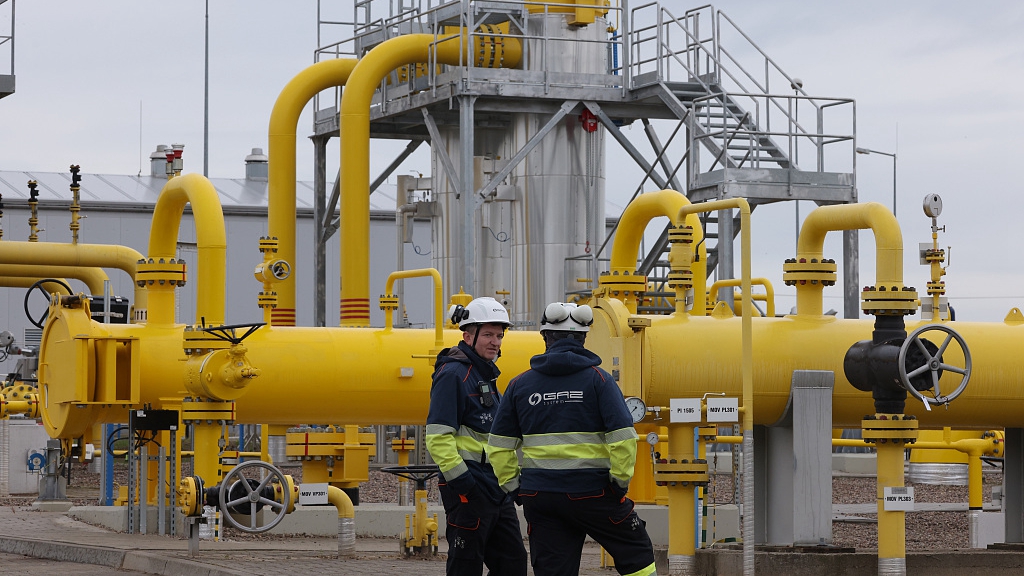
Workers of Polish natural gas company Gaz System stand among pipes of the Baltic Pipe natural gas pipeline, September 27, 2022. /CFP
Workers of Polish natural gas company Gaz System stand among pipes of the Baltic Pipe natural gas pipeline, September 27, 2022. /CFP
Global gas markets are expected to remain tight next year as Russian pipeline gas supplies dwindle and gas demand falls in Europe in response to energy-saving measures and high prices, the International Energy Agency (IEA) said on Monday.
Natural gas markets worldwide have been tightening since 2021 and global gas consumption is expected to decline by 0.8 percent this year as result of a record 10 percent contraction in Europe and flat demand in the Asia-Pacific region, the IEA said in its quarterly gas market report.
Meanwhile, global gas consumption is forecast to inch up by just 0.4 percent next year.
Russian pipeline gas supply to Europe has declined this year, and is now just a trickle after the shutdown of the Nord Stream 1 pipeline from Russia to Germany in early September and leaks were found on the pipeline system last week.
Europe has been trying to fill the gap of Russian pipeline gas this year, partly through increased liquefied natural gas (LNG) imports.
The IEA forecasts that Europe's LNG imports will increase by over 60 billion cubic meters this year, or more than double the amount of global LNG export capacity additions.
This means Asia's LNG imports could stay at lower levels than last year for the rest of 2022, due to high gas prices in Europe, drawing in more cargoes.
However, the agency expects China's LNG imports to rise next year under a series of new contracts concluded since the start of 2021.
The IEA said that if Russian supply to Europe completely stops from November 1, the European Union gas storage would be less than 20 percent full in February if LNG supply remains robust. But if LNG supply dwindles to low levels it could be 5 percent full by February.
(Source: Reuters with edits)